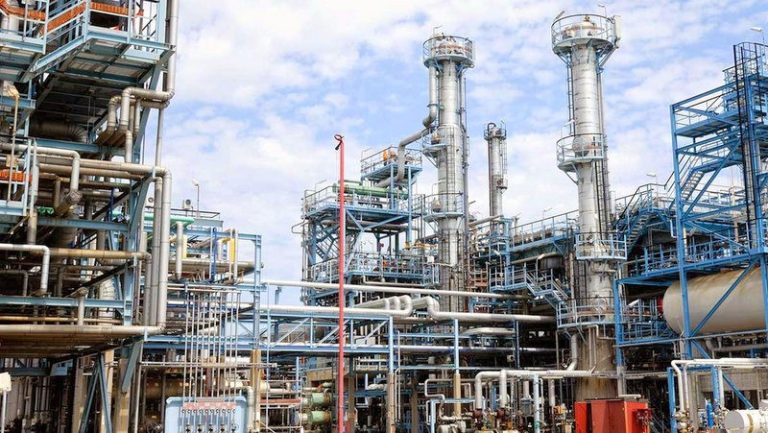Some Oil and Gasoline Consultants have mentioned that the approaching onstream of each Port Harcourt and Dangote refineries might result in some marginal discount in the price of petroleum merchandise and never a major worth crash.
The consultants made this recognized in an interview with the Information Company of Nigeria (NAN) on Sunday in Abuja.
In keeping with them, some ancillary prices, corresponding to freight and port fees, amongst others, would have been eradicated to realize the marginal discount.
The Federal Government had on Dec. 21, introduced the mechanical completion and flare start-up of the Port Hacourt Refining Firm Restricted (PHRC) and the next streaming of its part two in 2024.
This, in response to the Minister of State Petroleum (Oil), Sen. Heineken Lokpobiri, will herald the graduation of the manufacturing of petroleum merchandise after the Christmas break.
The PHRC comprised of two refining items, with the outdated plant having a refining capability of 60,000 barrels per day (bpd) and the brand new plant 150,000 bpd, each summing as much as 210,000 bpd.
Reacting to the event, an affiliate professor of power and pure assets on the College of Abuja, Olanrewaju Aladeitan, mentioned there ought to be some marginal discount in petrol costs as some ancillary prices would have been eradicated.
Nevertheless, he defined that the value of petroleum merchandise might not come down considerably as to explain it as crashing.
“The worth might not come down considerably as a result of crude oil and condensates provide for the home market beneath the Petroleum Business Act goes to be based mostly on a prepared provider and a prepared purchaser foundation.
“And the truth that the availability of crude oil might be commercially negotiated having regard to prevailing worldwide market worth for comparable grades of crude,” he mentioned.
With this provision, he mentioned there can be no devoted share of crude for native refineries.
“Therefore, worldwide market worth, which, after all, is denominated in {dollars}, will nonetheless be the determinant of the price of the crude oil that might be refined.
“So I don’t see how the value of Petroleum merchandise will crash,” Aladeitan mentioned.
Additionally talking, Mr Yushau Aliyu, an Financial Skilled, mentioned reaching to a mechanical take a look at of the refinery after a really lengthy fruitless effort was a sign that a part of our refined Premium Motor Spirit (PMS) deficit can be attended.
Aliyu described it as sign of restoration within the foreign exchange deficit, which dominated the dwindling liquidity disaster.
“As well as, the brand new Nigerian Nationwide Petroleum Firm Restricted (NNPC Ltd.) is responding to the fast resolution for the provision of PMS within the economic system.
“We expect the NNPC Ltd.’s retail stations to scale back their pump worth as a result of absence of touchdown price within the short-term results,” he mentioned.
One other oil and gasoline knowledgeable who most well-liked to stay nameless mentioned it was apparent that some individuals within the oil and gasoline sector had been engaged in an act of sabotage.
He frowned on the state of affairs the place the federal government most well-liked to spend a lot, together with international foreign money, to import gasoline, fairly than repair it refineries.
“They declare that the 60,000 barrels capability refinery in Port Harcourt is again on stream, whereas the 150,000 barrels capability will work quickly.
“We’re ready to see their work, together with that of Warri and Kaduna. When they’re put to make use of, let’s see why gasoline costs is not going to crash,” the knowledgeable mentioned.
NAN experiences that the pump worth of PMS has elevated to N660 per litre at varied gasoline stations, whereas NNPC Ltd.’s shops promote at N617 because the removing of subsidy in Might 2023 resulting from excessive crude price and excessive international trade charge.
The after-effects of the removing and excessive gasoline price introduced untold hardship and struggling to Nigerians resulting from inflation and a rise in items and providers, amongst others.


